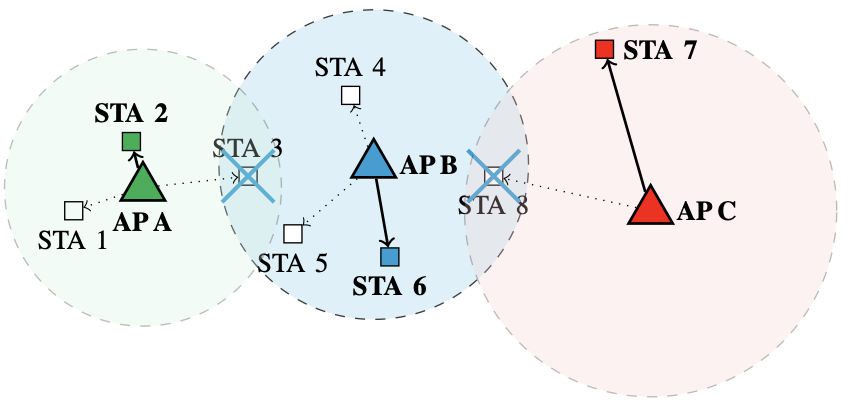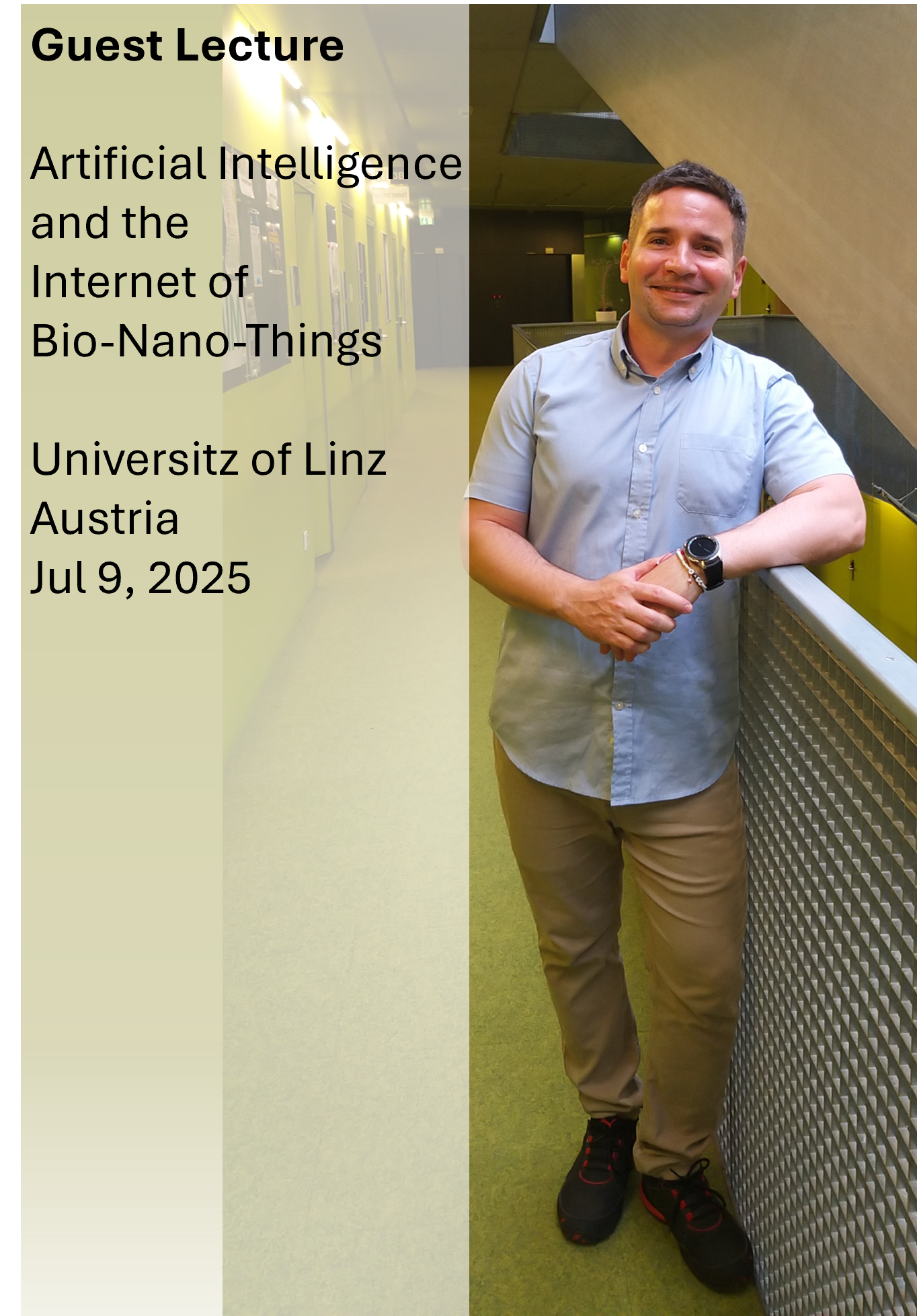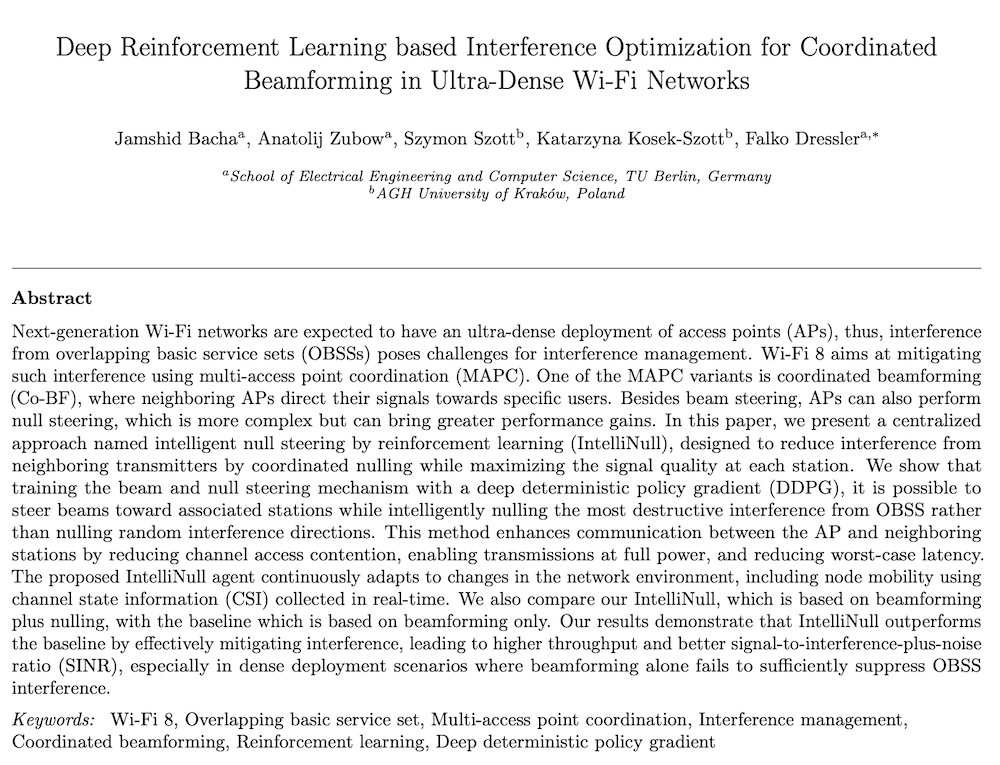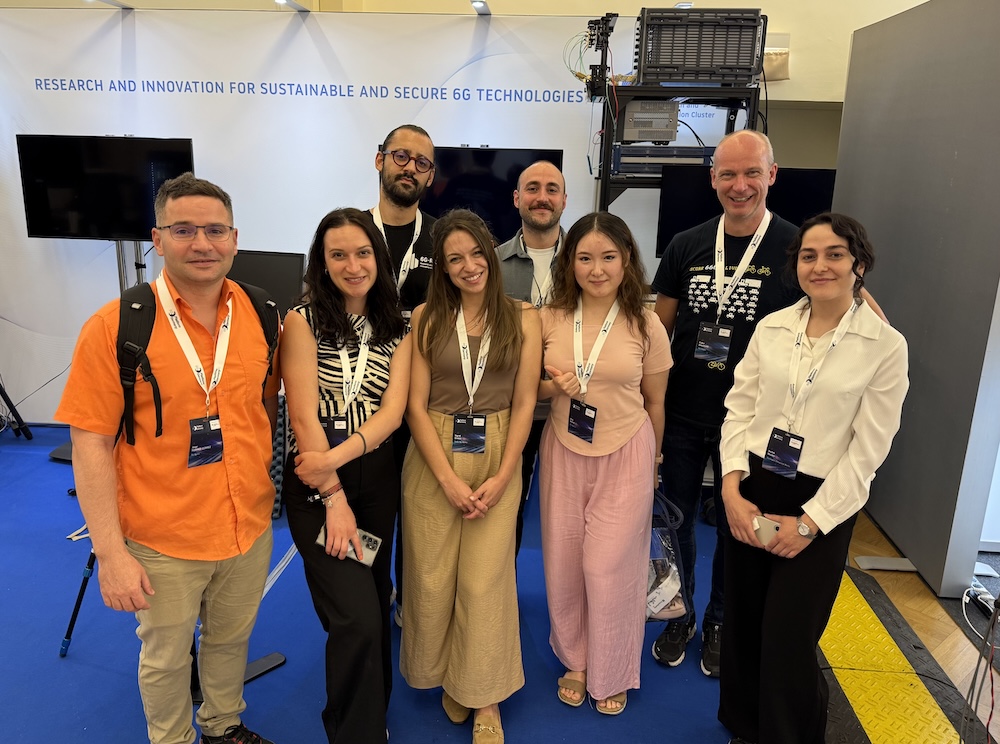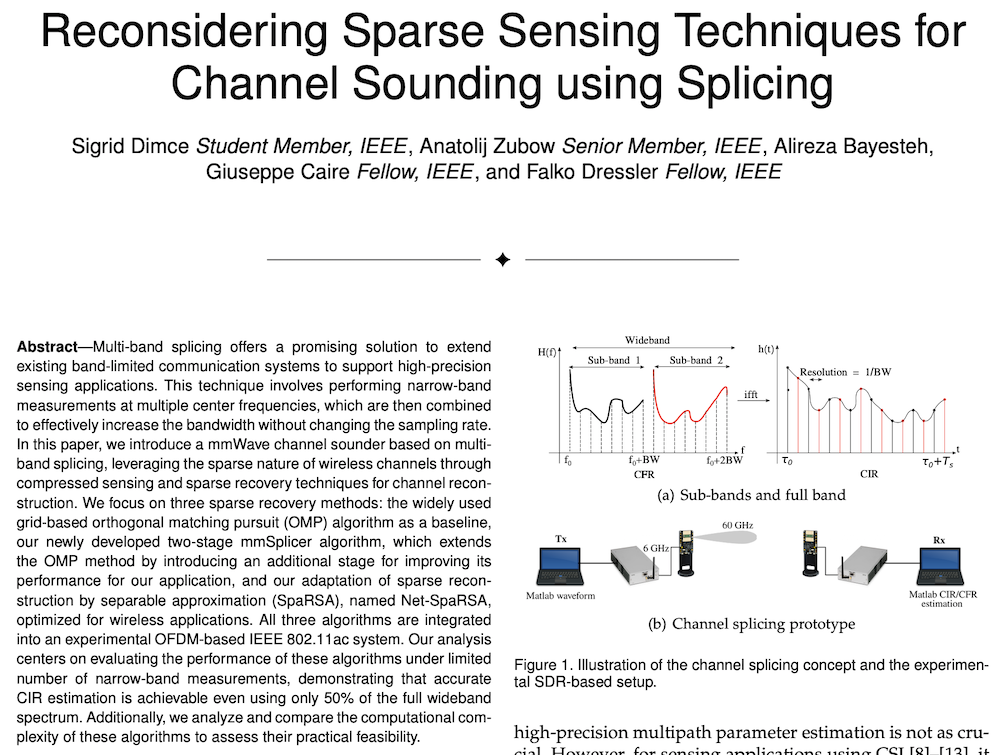Literature Database Entry
wahb2025full-duplex
Sama Wahb, Ahmed El-Mahdy and Falko Dressler, "Full-Duplex Cooperative Rate Splitting Multiple Access with Imperfect CSI and Imperfect SIC," Proceedings of International Conference on Innovative Research in Applied Science, Engineering and Technology (IRASET 2025), Fez, Morocco, May 2025, pp. 1–8.
Abstract
Rate splitting multiple access (RSMA) is one of the promising multiple access techniques in 6G. One of the limitations of RSMA is that the rate is limited by the worst user's rate. Cooperative rate splitting multiple access (C-RSMA) has become an essential technique to overcome this limitation. In this work, a downlink full-duplex C-RSMA with imperfect channel state information (ICSI) and imperfect successive interference cancellation (ISIC) is considered. Full-duplex (FD) relaying is used to fully utilize the channel in order to enhance the system performance. The objective is to maximize the minimum rate of the users, while ensuring that the transmission latency for each user's rate does not exceed a specified threshold. Success convex approximation (SCA) is used to optimize the precoding matrix, common rate allocation, and the relay power. Numerical results show that the proposed system improves the Max-Min rate compared to the other systems.
Quick access
Original Version ![]() (at publishers web site)
(at publishers web site)
BibTeX ![]()
Contact
Sama Wahb
Ahmed El-Mahdy
Falko Dressler
BibTeX reference
@inproceedings{wahb2025full-duplex,
author = {Wahb, Sama and El-Mahdy, Ahmed and Dressler, Falko},
doi = {10.1109/IRASET64571.2025.11008052},
title = {{Full-Duplex Cooperative Rate Splitting Multiple Access with Imperfect CSI and Imperfect SIC}},
pages = {1--8},
publisher = {IEEE},
address = {Fez, Morocco},
booktitle = {International Conference on Innovative Research in Applied Science, Engineering and Technology (IRASET 2025)},
month = {5},
year = {2025},
}
Copyright notice
Links to final or draft versions of papers are presented here to ensure timely dissemination of scholarly and technical work. Copyright and all rights therein are retained by authors or by other copyright holders. All persons copying this information are expected to adhere to the terms and constraints invoked by each author's copyright. In most cases, these works may not be reposted or distributed for commercial purposes without the explicit permission of the copyright holder.
The following applies to all papers listed above that have IEEE copyrights: Personal use of this material is permitted. However, permission to reprint/republish this material for advertising or promotional purposes or for creating new collective works for resale or redistribution to servers or lists, or to reuse any copyrighted component of this work in other works must be obtained from the IEEE.
The following applies to all papers listed above that are in submission to IEEE conference/workshop proceedings or journals: This work has been submitted to the IEEE for possible publication. Copyright may be transferred without notice, after which this version may no longer be accessible.
The following applies to all papers listed above that have ACM copyrights: ACM COPYRIGHT NOTICE. Permission to make digital or hard copies of part or all of this work for personal or classroom use is granted without fee provided that copies are not made or distributed for profit or commercial advantage and that copies bear this notice and the full citation on the first page. Copyrights for components of this work owned by others than ACM must be honored. Abstracting with credit is permitted. To copy otherwise, to republish, to post on servers, or to redistribute to lists, requires prior specific permission and/or a fee. Request permissions from Publications Dept., ACM, Inc., fax +1 (212) 869-0481, or permissions@acm.org.
The following applies to all SpringerLink papers listed above that have Springer Science+Business Media copyrights: The original publication is available at www.springerlink.com.
This page was automatically generated using BibDB and bib2web.

